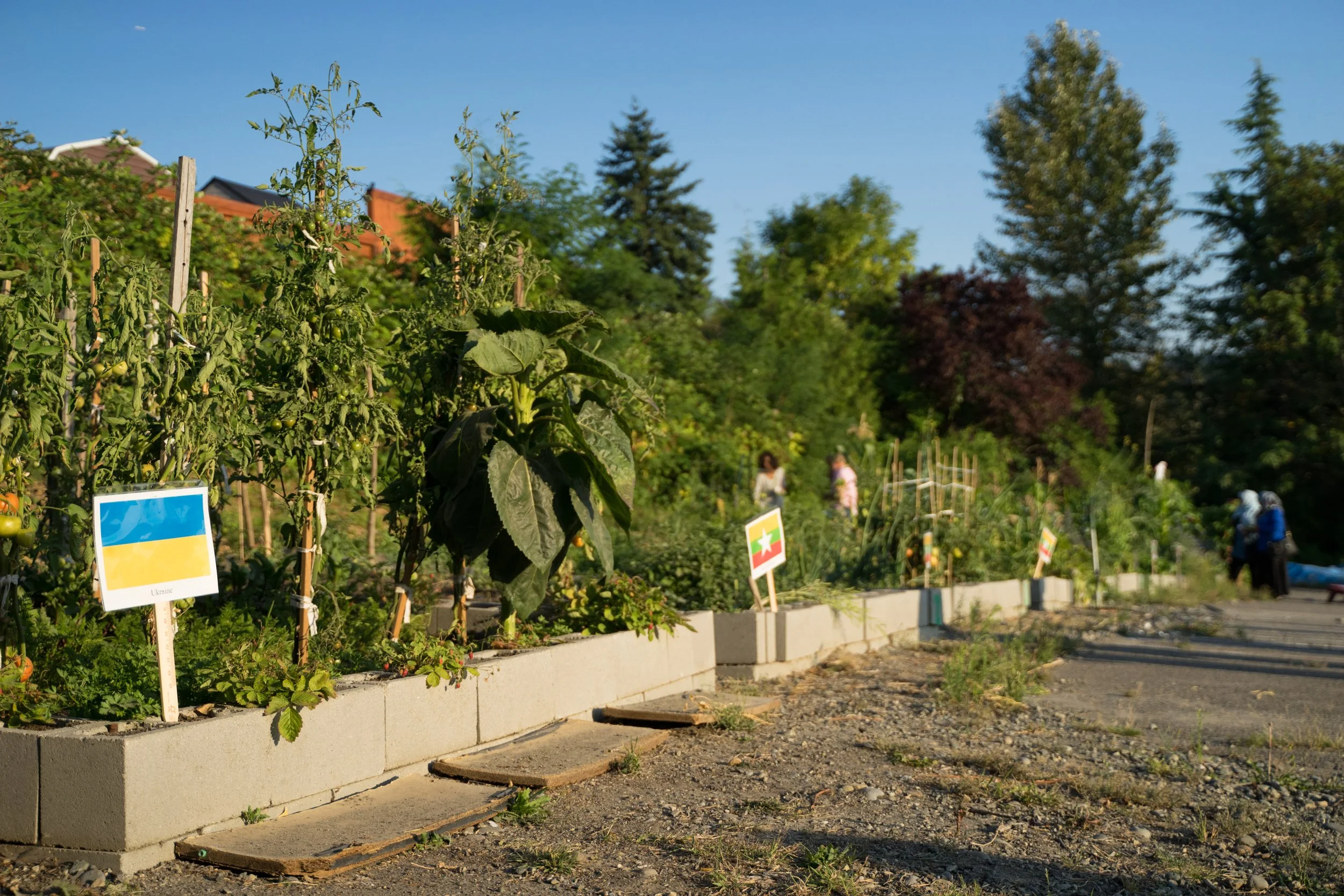Environmental Community Action, Inc. (ECO-Action) helps vulnerable communities in Georgia prevent, confront, and resolve environmental health threats. Collaborating with local universities and others, ECO-Action has been using green infrastructure to address frequent flooding. ECO-Action partnered with Earth Economics to analyze the public economic benefits of the proposed Green Infrastructure Conceptual Plans. Analysis focuses on the stormwater management benefits of 1) greenways, 2) street trees, and 3) cisterns and vaults.
The City of Kent and South King County are home to immigrant and refugee families from around the world. In response to calls for community space, World Relief Western Washington began developing the Paradise Parking Plots Community Garden in 2016, transforming a frequently flooded parking lot at Hillside Church into a vibrant multi-cultural garden oasis and resilience hub. Earth Economics assessed the ecoystem services benefits and the benefit-cost ratio of the community gardens, which provide gardeners with $127,000 in market value in foods produced each year.
Earth Economics partnered with the Washington Department of Ecology and Puget Sound Partnership to produce a study that reveals the breadth and magnitude of the ecosystem services provided by the Salish Sea Basin’s lands and waters. The results—an estimated US $124 billion in ecosystem services every year— show significant benefits to restoring natural capital in the Salish Sea. A second report focuses on value changes in landcover in Island County, Whidbey Basin, and contributing watersheds from 1992 to 2016. The ecosystems within this study area produced over $1.4 billion in non-market benefits each year.
The Hood Canal Salmon Enhancement Group (HCSEG) spearheads conservation and habitat restoration efforts on the Big Quilcene River, using easements and land acquisition to permanently protect areas of the floodplain and restore the benefits that a more natural floodplain provides. The group commissioned Earth Economics to conduct an analysis of the economic benefits, both market and non-market, of two planned large-scale restoration projects that would reconnect the Big Quilcene River to its historic floodplain.
The Southern Resident Killer Whale (SRKW) is a flagship species, a cultural icon, and an economic driver for Washington State. To better understand the economic incentives to invest in SRKW recovery, Earth Economics conducted an economic contribution analysis to estimate the value of whale watching in San Juan County.






